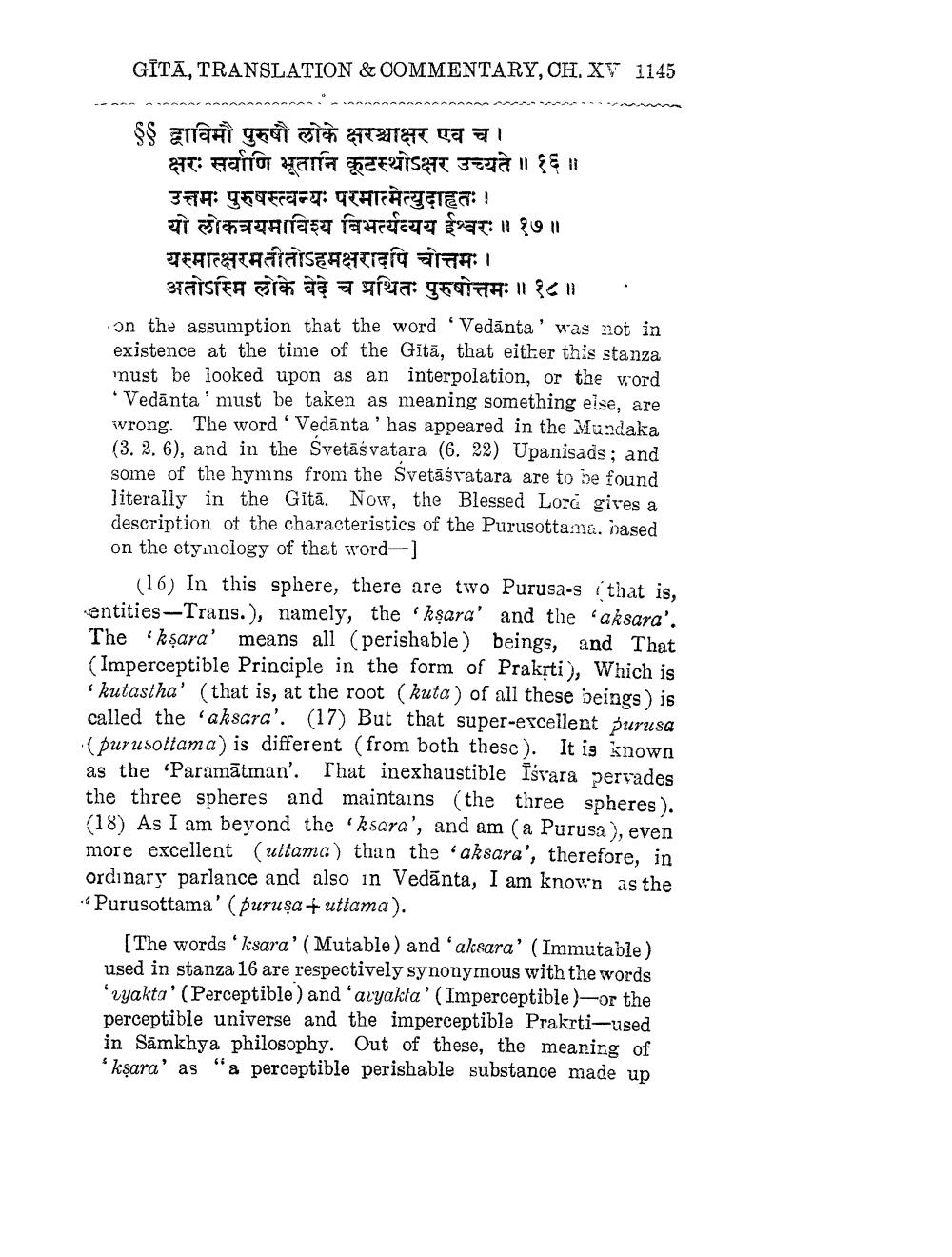________________
GITA, TRANSLATION & COMMENTARY, CH. XV 1145
६६ द्वाविमौ पुरुषौ लोके क्षरश्चाक्षर एव च।
क्षरः सर्वाणि भूतानि कूटस्थोऽक्षर उच्यते ॥१६॥ उत्तमः पुरुषस्त्वन्यः परमात्मेत्युदाहृतः। यो लोकत्रयमाविश्य बिभर्त्यव्यय ईश्वरः ॥१७॥ यस्मात्क्षरमतीतोऽहमक्षरादपि चोत्तमः।
अतोऽस्मि लोके वेदे च प्रथितः पुरुषोत्तमः ॥१८॥ on the assumption that the word 'Vedānta' was not in existence at the time of the Gītā, that either this stanza must be looked upon as an interpolation, or the word * Vedānta' must be taken as meaning something else, are wrong. The word ' Vedānta 'has appeared in the Mundaka (3. 2. 6), and in the Svetāśvatara (6. 22) Upanisads; and some of the hymns from the Svetāśvatara are to be found literally in the Gitā. Now, the Blessed Lord gives a description of the characteristics of the Purusotta ma, nased on the etymology of that word-]
(16) In this sphere, there are two Purusa-s (that is, entities-Trans.), namely, the kşara' and the aksara'. The kşara' means all (perishable) beings, and That (Imperceptible Principle in the form of Prakrti), Which is
kutastha' (that is, at the root (kuta) of all these beings ) is called the 'aksara'. (17) But that super-excellent purusa
purusottama) is different (from both these). It is known as the ‘Paramātman'. That inexhaustible Isvara pervades the three spheres and maintains (the three spheres). (18) As I am beyond the 'ksara', and am (a Purusa), even more excellent (uttama) than the 'aksara', therefore, in ordinary parlance and also in Vedānta, I am known as the Purusottama' (puruşa + uttama).
The words 'ksara' (Mutable) and 'aksara' (Immutable) used in stanza 16 are respectively synonymous with the words
vyakta' (Perceptible) and 'aryakta' (Imperceptible )-or the perceptible universe and the imperceptible Prakrti-used in Sāmkhya philosophy. Out of these, the meaning of kşara' as "a perceptible perishable substance made up




